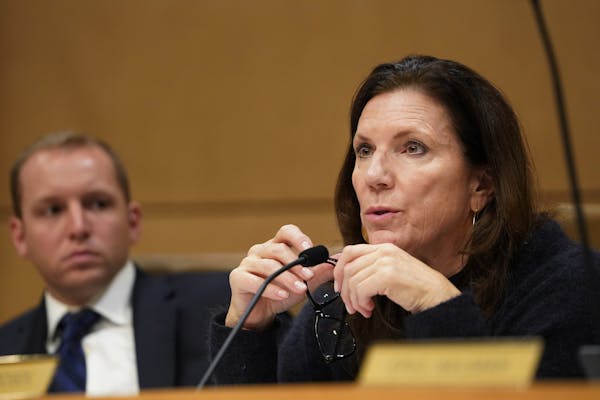Marijuana is a burden of Kente Shivers' past, but he hopes it can be his lifeline to a better future.
He was charged with felony possession of marijuana in 2017 and sentenced to more than 30 months in prison, a criminal record that's made it nearly impossible to find work and housing since he was released last year.
Now, Minnesota legislators are debating legalizing marijuana for adults and creating a marketplace to sell it, framing it as a racial equity issue that will help address the economic disparities and the disproportionate toll drug offenses have taken on communities of color.
The centerpiece of the bill is expungement for many marijuana offenses, as well as grants and aid to help those hit hardest by criminalization enter the legal market as entrepreneurs.
For Shivers, who is Black, it could mean clearing his record and starting a new career. "This could help a person like me get my life back in order," he said. "I want to be able to work in the cannabis industry and not have it be something that hinders me."
The proposal cleared a dozen House committees this session and will get a full vote in the chamber on Thursday, the furthest it's ever gone in the Minnesota Legislature. DFL Gov. Tim Walz supports the bill and it's picked up some GOP support along the way. It still faces long odds in the Senate, where Republicans in control have said it's not a priority during this budget year.
But major disparities in marijuana-related stops, arrests and convictions have reinforced a push to pass the legislation in the DFL-led House, as Minnesota grapples with its own systemic racial disparities in the wake of George Floyd's killing in police custody. Nationwide, lawmakers are pushing to decriminalize marijuana and provide clemency to those who've been incarcerated for certain marijuana offenses.
"It puts forth the best step forward on racial equity of any program in the country," said DFL Majority Leader Ryan Winkler, who is shepherding the legislation through the House. "What I find encouraging is that most people recognize the need to change the system and the need to change the inequities in the criminal justice system, even if they don't support full legalization."
Despite comparable usage rates, Black people are more than five times more likely than white people to be arrested for marijuana possession in Minnesota, according to a 2020 report from the American Civil Liberties Union. It found Minnesota ranked eighth among states for largest racial disparities in marijuana possession arrests.
Under the bill, petty misdemeanor and misdemeanor marijuana convictions would be automatically expunged. The state Bureau of Criminal Apprehension would identify eligible individuals and the courts would issue an order of expungement.
For other marijuana convictions, a Cannabis Expungement Board would review cases, including the amount of marijuana involved and whether the case involved violence. The board would decide whether expungement or resentencing — or neither — is in the public interest. The current process is expensive and rigorous and puts the burden on the person seeking expungement.
But law enforcement remains steadfast in its opposition to legalization, citing an increase in traffic crashes in states that allow adult use of cannabis.
"As of today there is still no roadside test for law enforcement to accurately determine an impaired driver's level of intoxication for marijuana," said Jeff Potts, executive director of the Minnesota Chiefs of Police Association. "We think such a test is vital to keeping Minnesota roads and highways safe."
Some of the revenue generated by selling marijuana would be put toward expert training for law enforcement on recognizing drug impairment during stops, Winkler said.
Minnesota allows marijuana only for medical purposes and it has one of the strictest programs in the nation, prohibiting enrollees from smoking the raw cannabis flower. Fifteen states plus the District of Columbia have already legalized recreational marijuana for adults, including neighboring South Dakota, where it passed with 54% of the vote in November.
Other states that have legalized marijuana have struggled to create marketplaces that include Black business owners, but Shivers notes cities like Los Angeles and Oakland in California have created cannabis equity programs, which have devoted millions of dollars to help minorities and those with marijuana-related criminal records get into the industry.
Minnesota's proposal would set aside a number of licenses to grow and sell marijuana for applicants such as military veterans and people in low-income communities. It would also give direct capital and establish training to help people in communities of color navigate the regulatory system. The bill would limit the size of businesses for the first four years of the program to give smaller companies a head start.
"My family already works in states where the cannabis industry is legitimate," said Shivers, who sells marijuana-themed shirts and hoodies to try to make money while he searches for other work. "It would be huge if they let people like myself get into the industry first."
Former DFL Senate Majority Leader Kari Dziedzic dies of cancer at age 62

How the Star Tribune is covering the 2024 election

Fact check: Walz and Vance made questionable claims during only VP debate

In Tim Walz's home city, opposing groups watch him debate on the national stage

